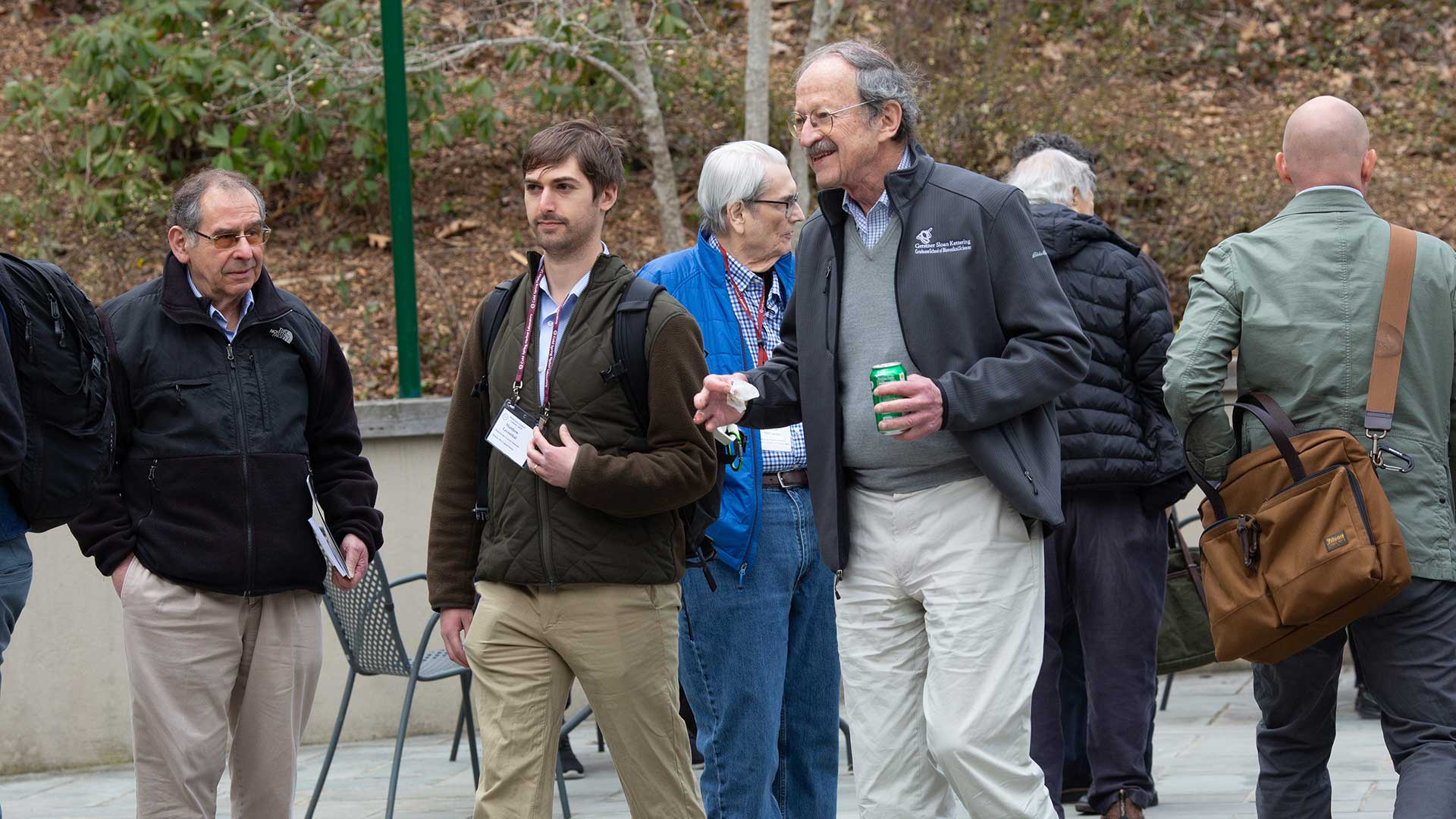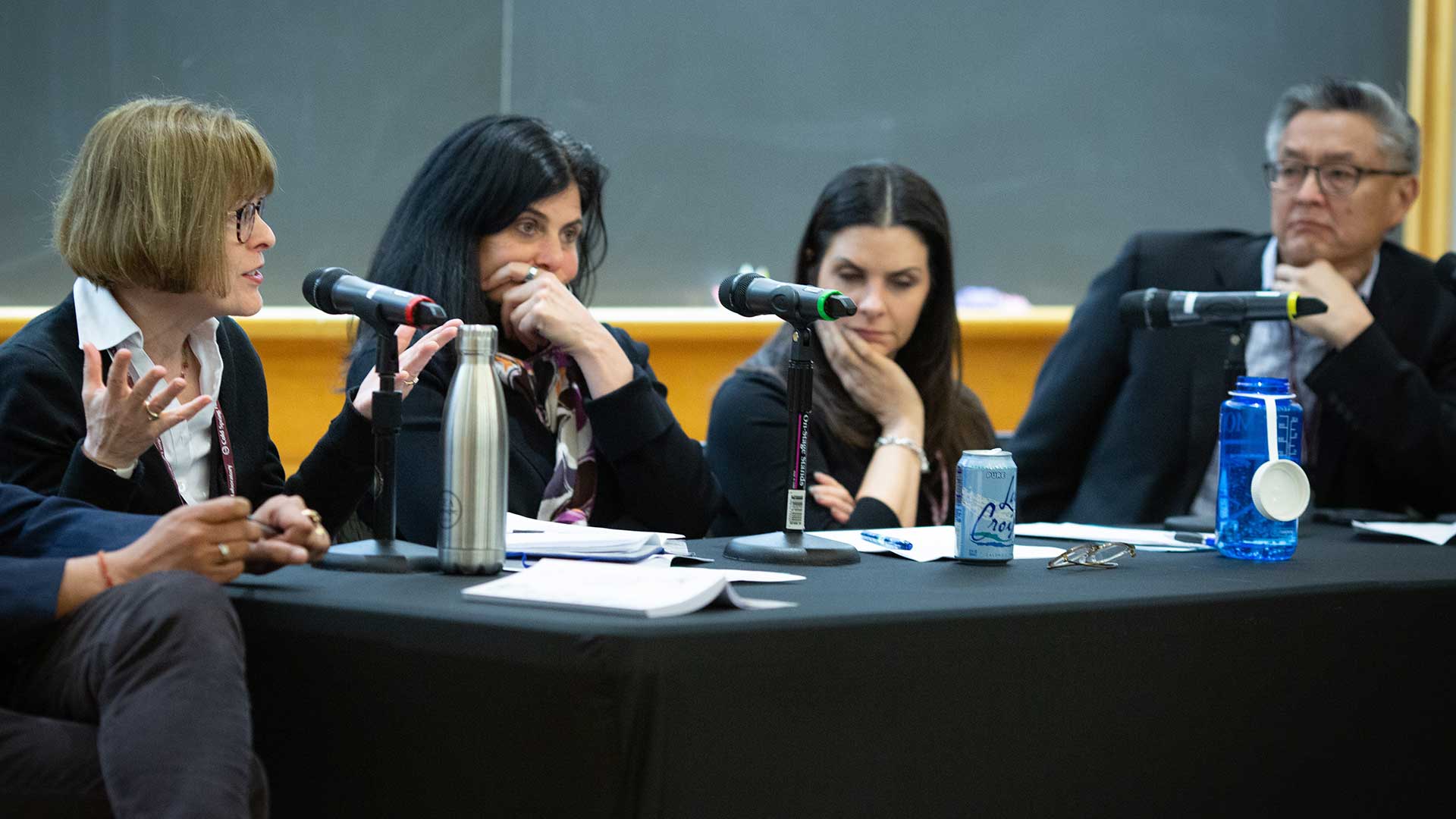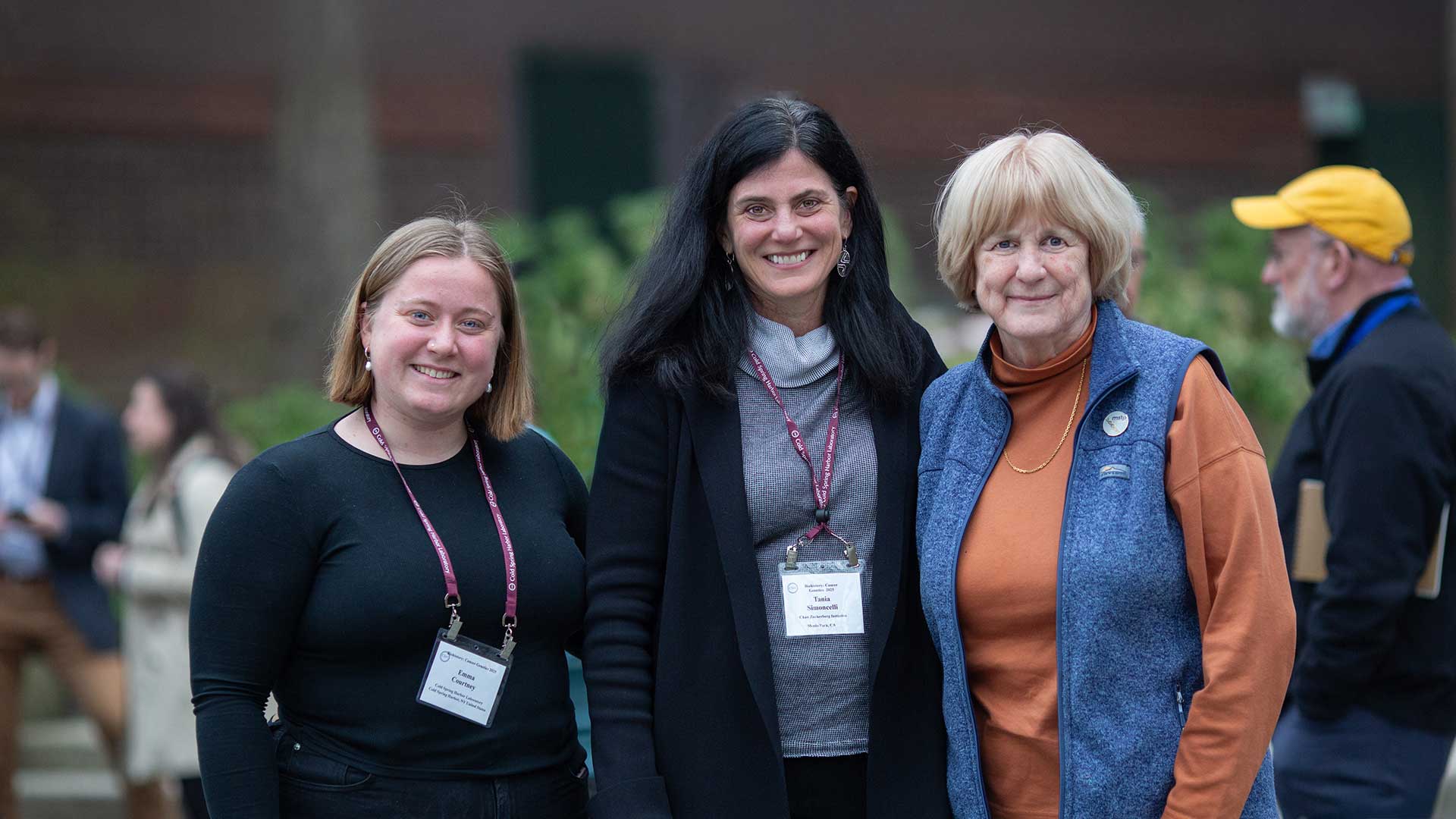From March 26–29, 2025, Cold Spring Harbor Laboratory’s Center for Humanities & History of Modern Biology, in collaboration with the CSHL Meetings & Courses Program, hosted Cancer Genetics: History & Consequences. The extraordinary international gathering brought together the field’s pioneers with today’s leading innovators and future trailblazers.
Over four days, attendees were immersed in a rich historical journey tracking cancer genetics from its earliest discoveries to its most promising frontiers. The meeting opened with personal reflections on foundational discoveries. Speakers offered firsthand accounts of monumental breakthroughs like the identification of reverse transcriptase, an enzyme that converts RNA into DNA.
Hear from cancer genetics’ leading voices Brian Druker, Carol Greider, Mary-Claire King, and Stephen Elledge, as well as meeting co-organizer Mila Pollock.
Talks moved seamlessly from past to present, spotlighting other landmark moments such as the discovery of oncogenes BRCA1 and MYC, the unraveling of signaling pathways Ras and Wnt, and the development of revolutionary technologies like single-cell sequencing and CRISPR. The scale of progress was impossible to miss.
One presenter pointed out that genetic analysis has moved from poring over charts that spanned entire hallways to sequencing whole genomes in a matter of hours. It was a potent reminder of how far the field has come, to the point where therapeutic strategies once considered theoretical now drive personalized approaches to cancer medicine.
Attendees heard from Nobel laureates David Baltimore, Harold Varmus, J. Michael Bishop, Jim Allison, Carol Greider, and William Kaelin—scientists whose work transformed our understanding of cancer and sparked entire subfields of research. Their talks were reflective and often emotional, as they spoke not only of scientific triumphs but also of the collaborations, rivalries, and serendipitous encounters behind them.

For CSHL graduate students in attendance, it was like hearing knowledge come to life. “It’s hard to stay in the lab,” said one Ph.D. candidate, “when the people who wrote the textbooks are talking down the street.” Moments like these captured the spirit of the meeting—a rare convergence of past, present, and future in one room.
Talks also honored those who could no longer be here in person. “There is such a thing as scientific immortality,” said Mary-Claire King, the geneticist who discovered BRCA1. “This meeting is a very, very good representation of how those of us who are still here are able to make that happen.”
And though the meeting explored history, its focus extended from today to tomorrow. A special evening panel, moderated by physician-scientist and author Siddhartha Mukherjee, tackled the social, legal, and ethical implications of cancer genetics.

Meanwhile, poster sessions buzzed with new research on tumor evolution, the immune system, and advanced computational tools. Likewise, the final session, titled Looking into the Future, spotlighted visionary efforts to overcome drug resistance, improve immune therapies, and develop new multipronged therapeutic strategies for aggressive cancers.
Most of all, the meeting fostered vibrant dialogue—between scientists and historians, students and Nobelists, past and future. It was a celebration not just of what we know but how we came to know it and where that journey might lead us next.
Written by: Emma Courtney, Graduate Student | publicaffairs@cshl.edu | 516-367-8455
